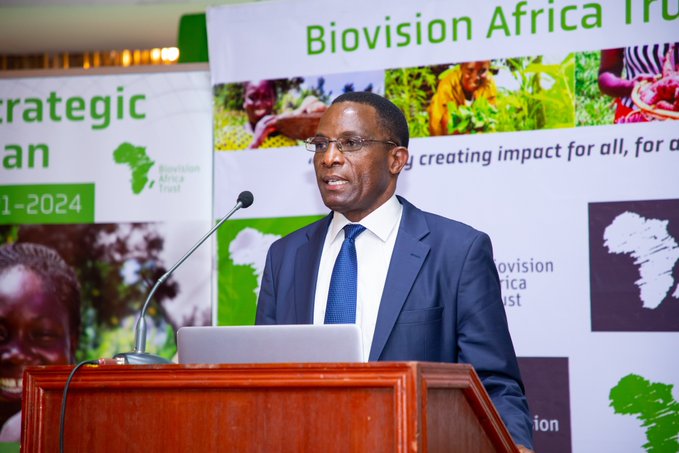
By George Munene
As Kenyans grow more conscious of the food they consume, there is an ever-increasing demand for organically farmed produce amongst the country's middle and upper class. Even though pesticide and fertiliser free produce fetches a premium price, a lack of expertise and market linkages has meant that investments in this still green agricultural sub-sector have remained low.
Founded in Kenya in 2009, Biovision Africa Trust (BvAT), helps smallholder farmers bridge these gaps in funding and technical know-how and aims to promote healthier foods and agricultural systems for Africa.
At the launch of the trust’s four-year strategic plan in Nairobi on Thursday, Dr David Amudavi, BvAT’s Executive Director emphasised the need to ensure that African farmers produce food that is safe and employ environmentally sustainable agroeconomic practices. ”With the commencement of the farmer communication program and ecological organic agricultural initiative, 2021 was a defining year for our organisation. With this strategic plan, we want to bolster dynamic markets and trade in organic produce as well as championing for and enabling policy and institutional environment for our organic growers,”.Amudavi said.
Related News: Fertilizer manufacture enlisting organic farmers to supply ready market
Related News: Processor guarantees prices for organic and traditional outgrowers
The organisation works with farmers in Eastern Africa countries, Kenya, Uganda, Tanzania, Ethiopia, and Rwanda as well as with some Western African countries.
“There is a need to promote organic agriculture to reduce the reliance on chemical inputs which do not only destroy the resources of our production but also the environment,” shared Amudavi
Andreas Schriber, BvAT’s Board Chair, argued that with sustainable ecological agricultural practices farmers not only get a return on investment from the returns from their yields but also an added value in the improvement in the overall health of their soils, animals, and their families.
“From a paltry 50,000 hectares of organically farmed land 10 years ago when BvAT was founded the sector has grown to over 2.1 million hectares today,” he said.
For Rose Mwongo, a farmer in Machakos County, Biovision has been transformative to her through lessons on sustainable farming over radio programmes such as Kilimo Hai, and The Organic Farmer magazines.
As a maize and beans farmer, her shift to ecological agriculture has meant a reduction in pesticide and fertiliser costs.
Related News: Rabbit keeping opens route to organic farming, fertiliser and pest control
“Before, I never knew I could mix plants and come up with strong chemicals that kill and keep away pests and diseases,” she stated.
She also lauded BvAT extension service officials who have helped her acquire a dam liner from the county. This ensures she has sufficient harvested water supplies that tide her over even in the drier seasons.
Biovision Africa Trust: +254 719052113
This email address is being protected from spambots. You need JavaScript enabled to view it.


















